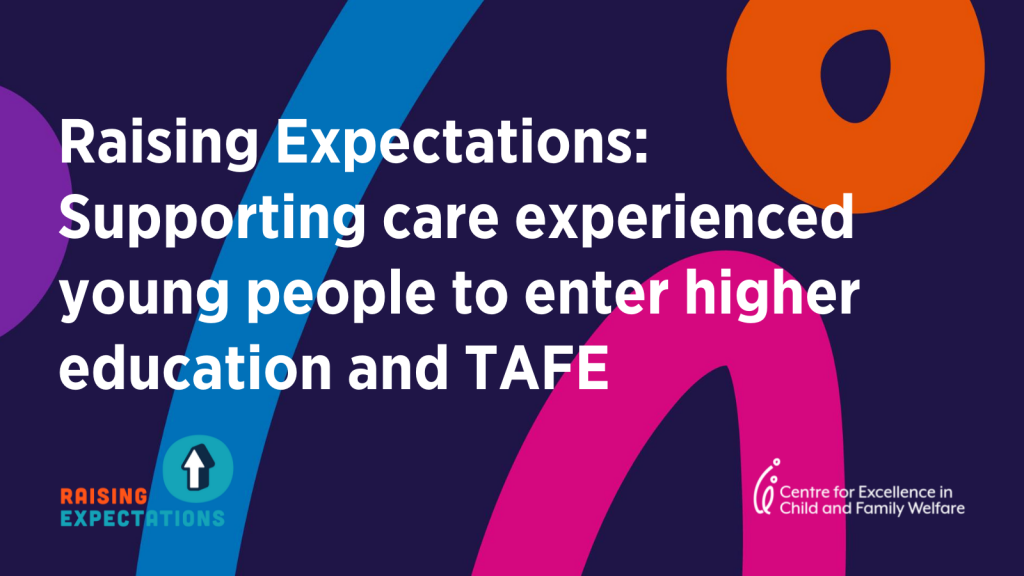Paul had lost both of his parents by the age of five. He was placed in kinship care where he remained until he was 17, during which time he moved houses eight times and changed schools four times.
Paul was diagnosed with Asperger’s Syndrome when he was eight.
“I remember at the time how frustrated I was with being told that I would “never fit in” or that I could “never learn to pick up social cues or act on unwritten rules”.
Although Paul often struggled to make friends, he found solace in his studies. At the end of year 11, he was accepted onto an accounting extension program at Monash University, which he took alongside his year 12. After graduation, Monash offered him a place to study a double degree in Arts and Business. He is now an accountant working for the Victorian Government.
Paul considers himself lucky. Few children and young people with an experience of out of home care – be it kinship, foster or residential care – will go on to complete higher education, compared to 40% of the general population. The reasons for this are complicated. The instability and trauma associated with entering care lead many children and young people to disconnect from education, and moving between families is disruptive to a child’s education and development. Young people in care also often have low expectations placed on them by other people.
Raising Expectations is working to break down barriers to entry into post-secondary education for young people with an experience of care.
Funded by the Department of Education and Training, Raising Expectations works with child and family services and dual sector partner universities to connect care experienced students to financial, academic and other services to support them to access and succeed in post-secondary education, breaking down some of the barriers that many care leavers face. The program is determined to create positive change by supporting care experienced young people to trust in their ability to pursue post-secondary study.
Paul said: “One of the biggest barriers to accessing higher education for young people in care is the low expectations of teachers, and not having strong peer networks.”
Paul is currently studying a Graduate Certificate of Professional Data Analytics at Raising Expectations partner university, Swinburne University of Technology. At Swinburne, care experienced students have access to a dedicated support coordinator and are encouraged to apply for access scholarships and bursaries specifically for such students.
Ruby had quite a different experience of care.
The eldest of three children, Ruby first experienced child protection when she was six, and was in and out of residential and foster care until she was 17.
“Life in the out of home care environment was hard. The whole experience made it extremely difficult to go to school and complete my studies, but it was something I was determined to do.”
Despite moving from town to town, Ruby persevered, and completed her senior year of VCAL.
Ruby was put in touch with Raising Expectations.
Raising Expectations guided Ruby in her higher education journey, introducing her to a program that allowed Ruby to pursue journalism.
“The support and guidance I’ve received has been amazing.”
Ruby is now studying in a Diploma in Communications at Deakin College, and hopes to transfer to Deakin University in Geelong in the future.
“If it wasn’t for Raising Expectations, I would never have found out what options I had to becoming a journalist,” she said.
Raising Expectations helped Ruby explore the types of scholarship she was eligible for, and connected her with different organisations to enable her to pursue her chosen career.
Although eligible care leavers under 24 can study from a range of over 800 TAFE courses in Victoria without having to pay fees, too few take up the option. Raising Expectations and their partner universities are building connections with Victorian TAFES and care leavers to make sure they are supported and informed about their options.
When the Raising Expectations program launched in late 2015, there were just 43 care experienced students identified at partner universities. By 2021, this number had risen to over 700, inclusive of both TAFE and university enrolments.
Paul recognises the value of higher education: “Higher education was transformative for me. I now feel a sense of control over my career and I enjoy working as an accountant, an opportunity afforded to me only by my uni degree.
“Everyone deserves a chance, and young people with an experience of care need more support and encouragement than most. The experience of entering out of home care makes people adaptable, resilient and determined, and these are all qualities that serve someone well in higher education.”
Raising Expectations works to challenge low expectations placed on young people with an out of home experience, and to open doors to higher education and beyond for people like Ruby and Paul.
Deb Tsorbaris, CEO at The Centre for Excellence in Child and Family Welfare said: “We commend the Victorian Government for having the foresight to fund this initiative and look forward to scaling the program to support the aspirations of more care leavers in the future.”






